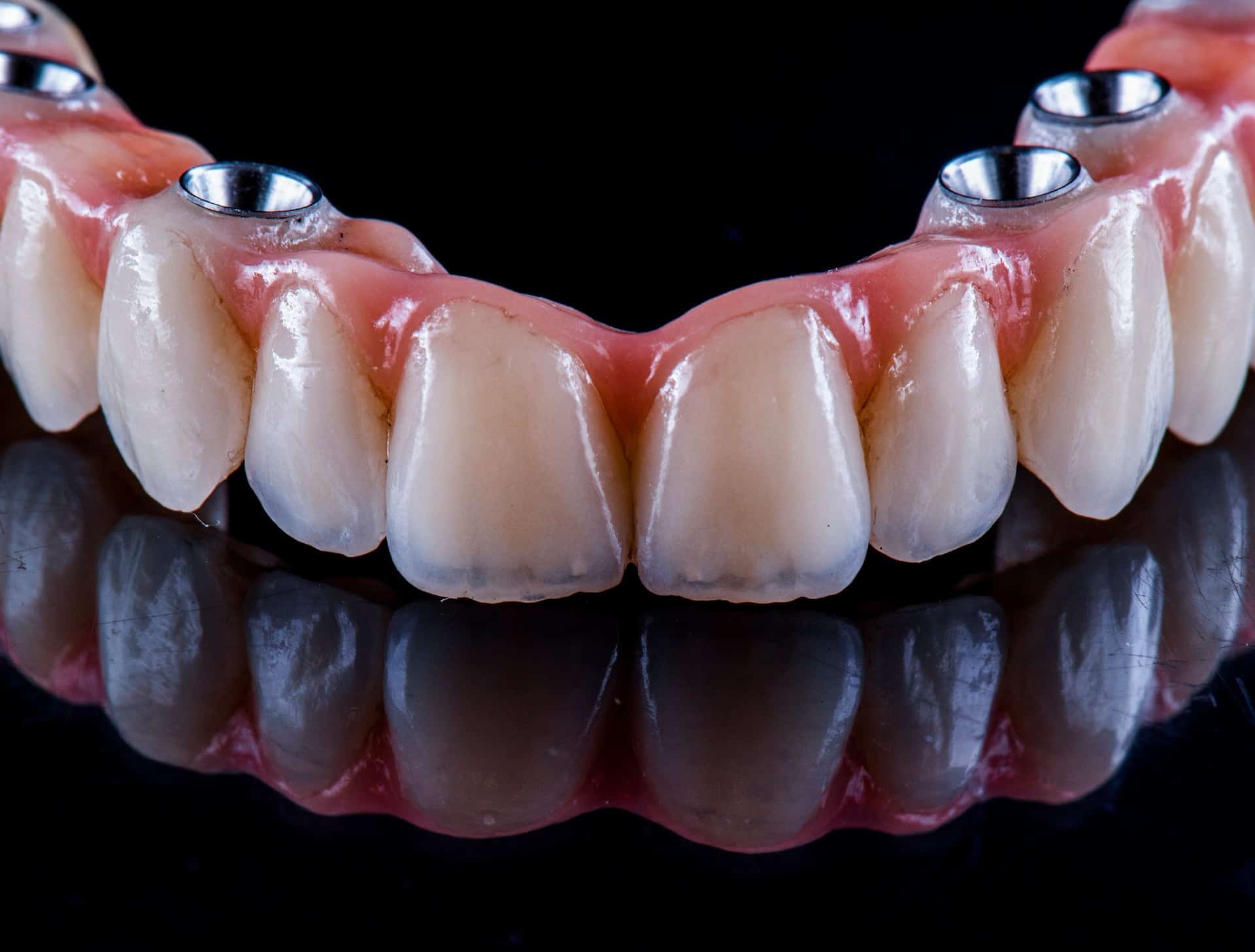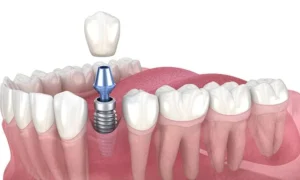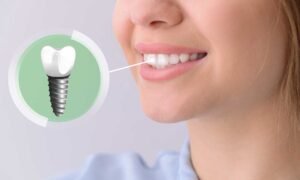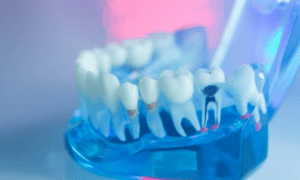Losing teeth can feel overwhelming, but the good news is that modern dentistry offers excellent solutions to restore both function and confidence. Two of the most popular options are dental implants and dentures, each with distinct advantages depending on your specific needs, budget, and oral health situation.
Both treatments can dramatically improve your quality of life, allowing you to eat, speak, and smile with confidence again. However, choosing between them requires careful consideration of factors like longevity, comfort, maintenance requirements, and cost. Understanding the differences between these options will help you make an informed decision that aligns with your lifestyle and goals.
This comprehensive guide will walk you through everything you need to know about dental implants and dentures, helping you determine which solution is best suited for your unique circumstances.
What Are Dental Implants?
Dental implants are titanium posts surgically placed into the jawbone to replace tooth roots. Once the implant integrates with your bone through a process called osseointegration, it provides a stable foundation for crowns, bridges, or dentures.
The implant procedure typically involves multiple stages spread over several months. First, your dentist places the titanium post into your jawbone. After a healing period of 3-6 months, during which the implant fuses with your bone, an abutment is attached. Finally, your custom-made crown or prosthetic is secured to the abutment.
Types of Dental Implants
Single Tooth Implants: Replace individual missing teeth with independent crowns that look and function like natural teeth.
Multiple Tooth Implants: Use several implants to support bridges that replace multiple adjacent missing teeth.
All-on-4 or All-on-6: Full mouth restoration using four to six strategically placed implants to support a complete arch of teeth.
What Are Dentures?
Dentures are removable prosthetic devices designed to replace missing teeth and surrounding tissues. They come in two main types: complete dentures for patients missing all their teeth, and partial dentures for those with some remaining natural teeth.
Modern dentures are crafted from high-quality materials that closely mimic the appearance of natural teeth and gums. The base is typically made from acrylic resin, while the teeth can be made from porcelain or composite materials.
Types of Dentures
Complete Dentures: Replace all teeth in the upper or lower jaw, relying on suction and adhesive for retention.
Partial Dentures: Fill gaps left by missing teeth while preserving healthy natural teeth. They often use clasps or precision attachments to anchor to existing teeth.
Implant-Supported Dentures: Combine the benefits of both treatments, using implants to secure dentures for improved stability and retention.
Dental Implants: Pros and Cons
Advantages of Dental Implants
Permanent Solution: With proper care, implants can last 25 years or longer, often for a lifetime.
Natural Feel: Implants function like your original teeth, allowing you to eat all your favorite foods without restrictions.
Bone Preservation: The titanium post stimulates jawbone tissue, preventing the bone loss that typically occurs after tooth loss.
No Impact on Adjacent Teeth: Unlike bridges, implants don’t require altering healthy neighboring teeth.
Easy Maintenance: Care for implants just like natural teeth with regular brushing, flossing, and dental checkups.
Disadvantages of Dental Implants
Higher Initial Cost: The upfront investment is significantly higher than dentures, though they may be more cost-effective long-term.
Surgical Procedure: Implant placement requires surgery, which carries inherent risks and requires healing time.
Time Investment: The complete process can take 3-8 months from start to finish.
Not Suitable for Everyone: Patients with insufficient bone density, certain medical conditions, or poor oral hygiene may not be good candidates.
Dentures: Pros and Cons
Advantages of Dentures
Lower Initial Cost: Dentures are much more affordable upfront compared to implants.
Non-Surgical Option: No surgery required, making them suitable for patients who cannot undergo implant procedures.
Quick Results: You can receive dentures within a few weeks to a couple of months.
Adjustable: Dentures can be relined, adjusted, or replaced as your mouth changes over time.
Suitable for Most People: Nearly everyone can wear dentures regardless of bone density or overall health.
Disadvantages of Dentures
Requires Replacement: Traditional dentures need replacement every 5-8 years due to wear and changes in mouth shape.
Dietary Limitations: Some foods may be difficult to eat, particularly sticky, hard, or chewy items.
Potential Slipping: Dentures can shift during eating or speaking, especially lower dentures.
Daily Maintenance: Dentures require special cleaning solutions and must be removed nightly.
Bone Loss: Without tooth roots to stimulate the jawbone, gradual bone deterioration continues.
Cost Comparison
The cost difference between dental implants and dentures is substantial, but it’s important to consider long-term value when making your decision.
Dental Implant Costs
Single dental implants typically range from £1,800 to £3,500 per tooth, including the implant, abutment, and crown. Full mouth restoration with implants can cost £12,000 to £30,000 per arch.
While the initial investment is higher, implants rarely need replacement and require minimal ongoing costs beyond regular dental care.
Denture Costs
Complete dentures usually cost between £500 to £2,500 per arch, while partial dentures range from £300 to £1,800. Premium dentures with better materials and fit can cost £1,500 to £2,500 per arch.
However, dentures require periodic adjustments, relines, and eventual replacement, adding to the total cost over time. Factor in denture adhesives, cleaning solutions, and potential repairs when calculating long-term expenses.
Maintenance and Care Requirements
Caring for Dental Implants
Implant maintenance mirrors natural tooth care. Brush twice daily with a soft-bristled toothbrush, floss regularly, and visit your dentist every six months for cleanings and checkups.
Avoid using your teeth as tools, don’t chew ice or hard objects, and quit smoking if applicable, as tobacco use significantly increases implant failure risk.
Caring for Dentures
Denture care is more involved than implant maintenance. Remove dentures nightly and soak them in denture cleaning solution. Brush them daily with a denture brush and special denture cleaner—never use regular toothpaste, which can be too abrasive.
Clean your gums and any remaining natural teeth thoroughly. Store dentures in water or cleaning solution when not wearing them to prevent warping or cracking.
Who Should Choose Dental Implants?
Dental implants are ideal for patients who:
- Have sufficient bone density to support implants
- Are in good overall health with healthy gums
- Want a permanent, low-maintenance solution
- Can invest in higher upfront costs for long-term benefits
- Prefer not to deal with removable appliances
- Want to maintain their current diet without restrictions
Who Should Choose Dentures?
Dentures work well for patients who:
- Have budget constraints and need an affordable solution
- Cannot undergo surgical procedures due to health conditions
- Have experienced significant bone loss in their jaw
- Need to replace multiple teeth quickly
- Are comfortable with daily appliance maintenance
- Don’t mind some dietary adjustments
Making Your Decision: Key Factors to Consider
Your Overall Health
Your general health status plays a crucial role in treatment selection. Conditions like uncontrolled diabetes, autoimmune disorders, or certain medications may affect implant healing and success rates.
Bone Density and Quality
Adequate bone volume is essential for implant success. If you’ve been missing teeth for an extended period, bone loss may have occurred. Your dentist can evaluate your bone structure through X-rays and CT scans.
Lifestyle Preferences
Consider how each option fits your daily routine. If you travel frequently, implants might be more convenient since they don’t require special cleaning solutions or storage containers.
Long-term Goals
Think about your expectations for the next 10-20 years. While dentures cost less initially, the cumulative expense of replacements, adjustments, and maintenance supplies can add up over time.
Your Path to a Restored Smile
Both dental implants and dentures can successfully restore your smile and oral function, but the right choice depends on your individual circumstances. Consult with a qualified dentist or oral surgeon who can evaluate your specific situation, discuss your goals, and recommend the most appropriate treatment.
Don’t let missing teeth hold you back from living your best life. Schedule a consultation today to explore your options and take the first step toward regaining your confidence and oral health.



































